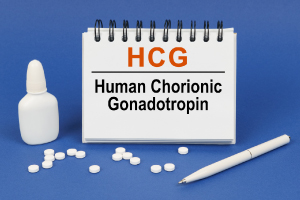

Sleep is a time when the body rests, but the mind stays active. During sleep, we experience dreams—sensory, emotional, and mental journeys that can be vivid, strange, or even scary. Dreams often reflect our hidden thoughts and feelings with colourful images, emotions, and sensations. Some people dream in bright colours, while others see only black and white. Those who are blind may dream using senses like smell, taste, and sound. In this content, you will uncover more about sleep and dream, the various stages of sleep, and many more.
The Stages of Sleep: What Are They?
So the first thing one should know while learning about the connection between sleep and dream is to discover the various phases of sleep. A sleep cycle has four stages, out of which three of them are non-REM sleep. However, only one stage is REM sleep. Every sleep cycle lasts for roughly 90 minutes in individuals. Below you will find the stages of sleep briefly explained:
Stage 1: Light Sleep (Non-REM)
This is the first stage of sleep and it only lasts a few minutes. During this time:
- Your eyes move slowly under your eyelids.
- Your muscle activity decreases.
- You can be easily woken up.
Stage 2: Deeper Light Sleep (Non-REM)
This stage makes up about 50% of your total sleep time. It’s a little deeper than Stage 1. Here’s what happens:
- Your heart rate and breathing slow down.
- Your body temperature drops.
- Brain waves become slower with occasional bursts of activity (called sleep spindles).
Stage 2 prepares your body to enter deeper sleep stages, helping your brain and body relax.
Stage 3: Deep Sleep (Non-REM)
Stage 3 is the most restorative sleep stage. It’s harder to wake up from this stage, and if you do, you might feel disoriented. During this phase:
- Your breathing and heart rate are at their lowest.
- Your muscles are completely relaxed.
- Your body repairs tissues, builds muscle and strengthens the immune system.
People spend more time in this stage during the early part of the night.
Stage 4: REM Sleep (Rapid Eye Movement)
REM sleep usually starts about 90 minutes after falling asleep and repeats every 90 minutes throughout the night. It’s the stage when most of your dream sleep occurs.
- Your eyes move rapidly under your eyelids.
- Your brain activity is similar to when you’re awake.
- Your body experiences REM atonia, where your muscles become temporarily paralysed to prevent you from acting out dreams.
This stage is crucial for memory consolidation and emotional processing. About 20-25% of your total sleep time is spent in REM sleep.
Why Do We Dream?
Dreaming is still a mystery, but experts have some interesting ideas. Here’s a quick look at the main theories:
| Theory | What It Suggests |
| Incidental Brain Activity | Dreams are just random brain activity with no real purpose. |
| Memory Consolidation | Dreams help strengthen memories by sorting important information and discarding the unimportant. |
| Emotional Processing | Dreams allow us to explore and handle feelings in a safe, imaginary space. |
| Mental Housekeeping | The brain clears out unnecessary information, keeping the mind sharp and focused. |
| Event Replays | Dreams mix recent events and memories to help make sense of experiences. |
While no single theory explains dreams completely, many believe dreaming helps us process emotions, strengthen memories, and keep our brains healthy.
Why Do We Dream About Someone?
Dreaming is a natural part of dream sleep, especially during REM sleep. But why do we dream about someone? The reason could be that we’ve been thinking about them or that they are linked to strong memories or emotions. Sometimes, dreams are just random, as the brain sorts through thoughts and feelings from the day. Even if dreams feel strange, they’re a normal way for the brain to stay active during sleep and process emotions.
Having Nightmares: Why Do People Experience Them?
At times, you might think, “why do we have nightmares?” It takes place because of countless facets, such as anxiety and tension. All these things can easily trigger severe emotional responses during dream sleep. Cognitive ailments such as PTSD can also cause periodic nightmares, making individuals relive traumatic situations. Various sleep ailments like sleep apnea and even side effects from medication can lead to nightmares. Substance withdrawal and sleep deprivation can also increase the frequency of nightmares. It’s crucial to have proper knowledge about why do we get bad dreams, as it will assist you in preventing and managing nightmares
Conclusion
Sleep is more than just resting; it’s an active process where your body and mind go through important changes. Understanding REM sleep, stages of sleep and improving dream recollection can offer you helpful insights into emotional and cognitive methods. You should embrace the mystery of dreams and uncover all their potential meanings. Doing so will aid you in deepening your knowledge of why do we dream Psychology and speak with a sleep specialist if needed.




